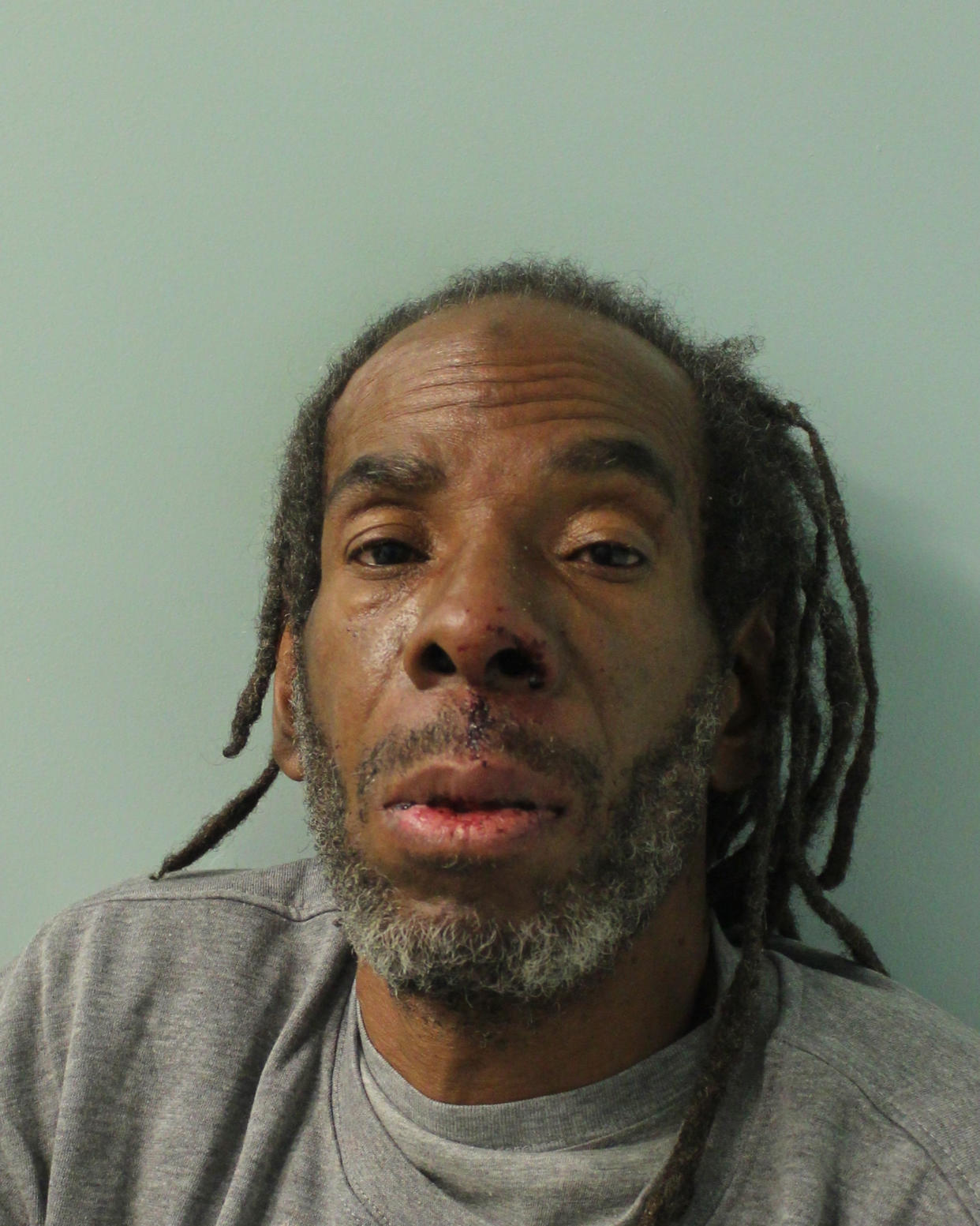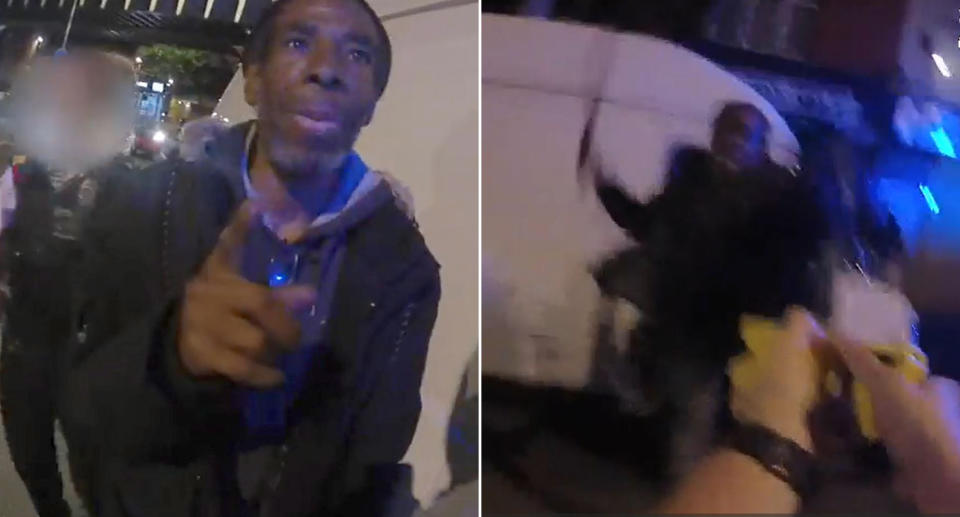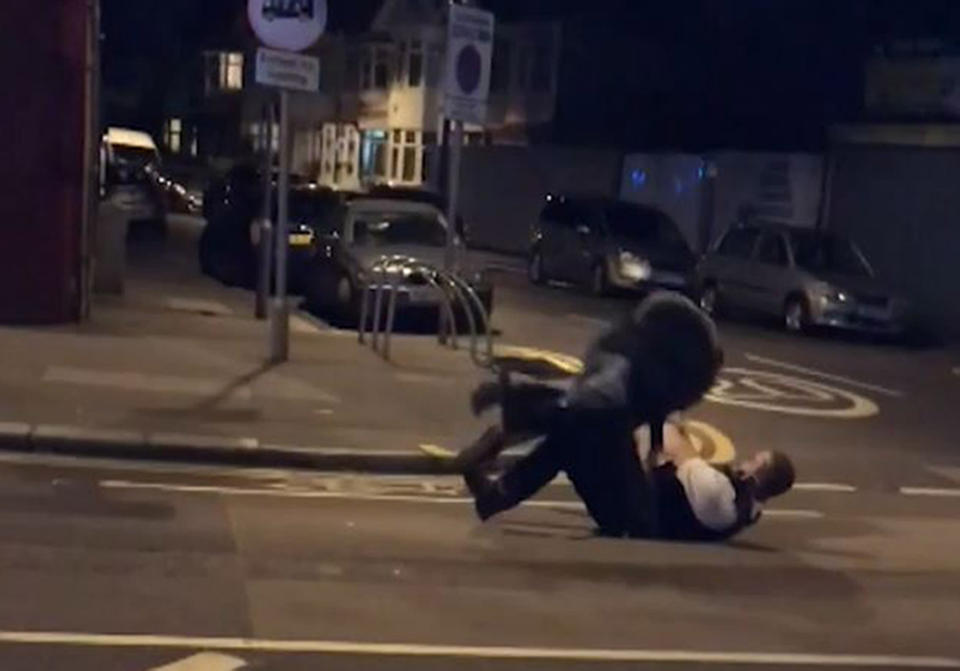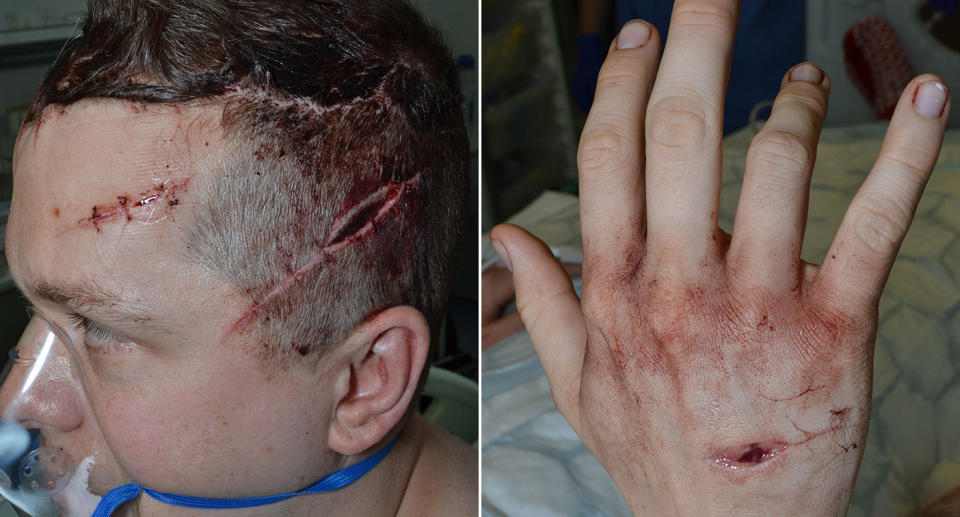Why was the machete attack handyman who hacked police officer's skull cleared of attempted murder?

A handyman hacked a police officer’s head with a rusty machete so hard it left his skull exposed - but was cleared of attempted murder by a jury yesterday.
Footage from the incident in August last year shows a frenzied Muhammad Rodwan striking PC Stuart Outten with a two foot long rusty machete - sharpened just days before - leaving the officer with blood streaming down his face.
PC Outten, of the Metropolitan Police, had pulled over Rodwan, who was driving in a van, in Leyton, east London, when he suspected him of driving without insurance.
He attempted to restrain Rodwan but the 56-year-old handyman lashed out with a machete before PC Outten managed to Taser him - despite suffering six wounds to his head, skull fractures, broken fingers and injuries to his arms.


Today, Rodwan - who has previous convictions for rape and two machete attacks - was given 16 years in prison after a jury found him guilty of wounding with intent to do grievous bodily harm.
But social media users took to the internet to question how a jury could have cleared him of attempted murder.
The Crown Prosecution Service (CPS) says an attempted murder offence “requires the existence of an intention to kill, not merely to cause grievous bodily harm”.
A prosecutor would have to prove that a defendant had intended to kill in an attack - it is insufficient to simply demonstrate a victim was wounded badly.
There can be a big difference in sentences for attempted murder and wounding with intent.

The Sentencing Council - which promotes consistency in sentences handed down by judges in England and Wales - says prison sentences for attempted murder can vary from six to 35 years, while wounding with intent ranges from three to 16 years, depending on the severity and impact of the crimes.
The jury in Rodwan’s case instead found him guilty of wounding with intent to do grievous bodily harm - meaning it was satisfied PC Outten’s injuries amounted to GBH and that Rodwan had intended to cause it.
The CPS states that grievous bodily harm is another way of saying “really serious harm”, and a wound is defined as “a break in the continuity of the whole skin”.
It adds that a prosecutor must show “the defendant intended to wound and/or cause grievous bodily harm, and nothing less than an intention to produce that result, which in fact materialised, will suffice”.
It states: “A person “intends” to cause a result if he/she consciously acts in order to bring it about.
“Factors that may indicate specific intent include a repeated or planned attack, deliberate selection of a weapon or adaptation of an article to cause injury, such as breaking a glass before an attack, making prior threats or using an offensive weapon against, or kicking, the victim’s head.”
Rodwan was also cleared by the jury on possessing an offensive weapon.
During the trial, Rodwan rejected the idea he kept his machete in case someone broke into his van, which he lived in.

He instead told jurors he had been using it to chop up bramble during a gardening job in Gospel Oak.
Section one of the Prevention of Crime Act 1953 bans the possession of an offensive weapon in a public place “without lawful authority or excuse”, the CPS states.
An offensive weapon is defined as “any article made or adapted for use to cause injury to the person, or intended by the person having it with him for such use”.
“Whether an article is an offensive weapon is a question of fact for the jury,” the CPS states.
If a jury is not convinced, they would not be able to deliver a guilty verdict for that offence.
Rodwan was sentenced to 16 years in prison at the Old Bailey today, and will have to serve two-thirds before he is eligible for parole. He was also given an extra three years on licence, to be served after he is released.
At today’s sentencing, Mrs Justice Carr said: “This was a brutal and shocking attack with a machete on a police officer carrying out his duties during what should have been a routine stop of a van to investigate whether you were properly insured.”
PC Outten insisted he had just done his job in the incident, and today spoke of realising he had to “fight for (his) life”.

 Yahoo Movies
Yahoo Movies 
